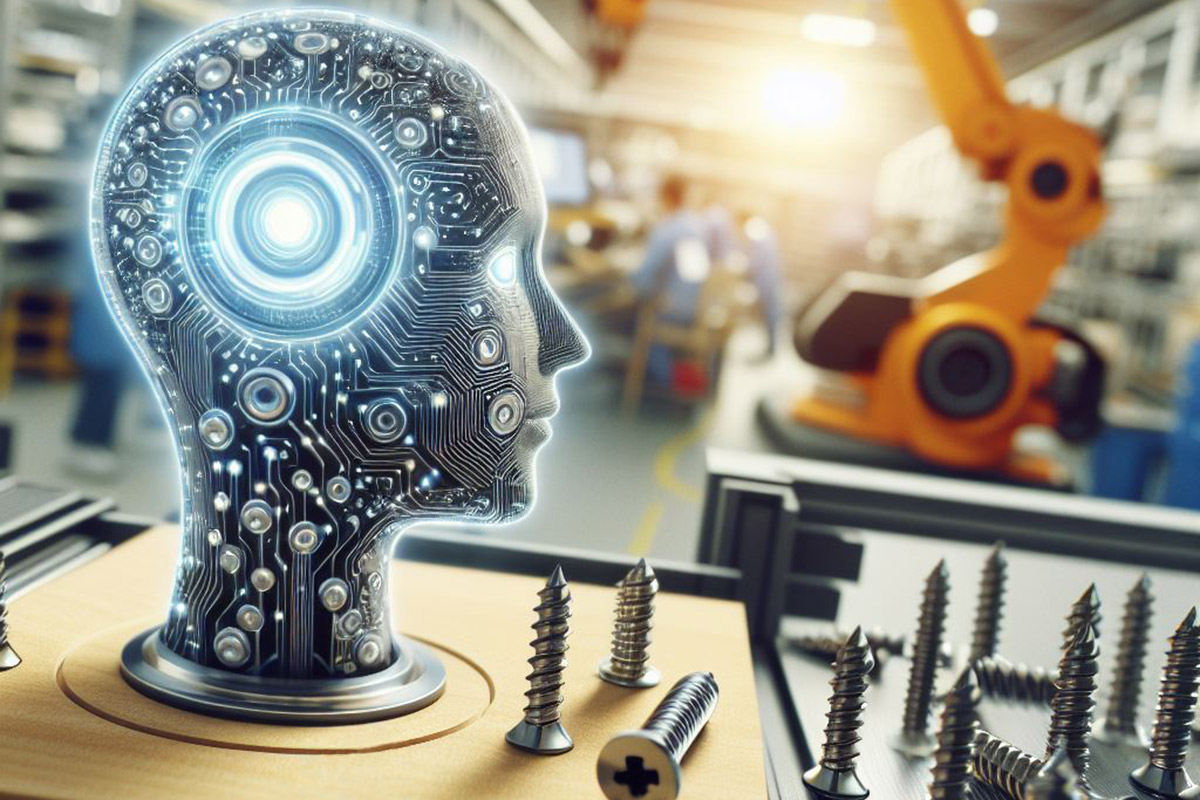With the advent of Artificial Intelligence (AI), many industries are undergoing true revolutions in terms of methods and value creation. Among the most interesting areas where AI is making a significant impact is in the manufacturing processes of companies. How? Thanks to its ability to analyze large amounts of data in real-time, adapt to contextual variations, and automate complex tasks.
The use of Enterprise Resource Planning (ERP) software has significantly transformed the manufacturing industry. This integrated system of business management supports companies in effectively coordinating various critical processes (such as accounting, human resources, supply chain management, inventory management, production and distribution, sales and marketing, etc.), improving operational efficiency, optimizing resource utilization, and facilitating informed decision-making through centralized access to real-time business data and information.
Advantages of Integrating Artificial Intelligence into ERP Systems
As mentioned earlier, artificial intelligence and machine learning (ML) are further revolutionizing manufacturing processes, changing the way data is collected, processed, and analyzed. Hence, the transformative potential of AI in combination with ERP systems can be inferred. We have identified at least ten advantages of AI (in as many key areas) in enhancing manufacturing capabilities:
- Inventory management: AI integrated with ERP enables predictive demand forecasting, identification of slow-moving products, and automation of order fulfillment, optimizing inventory levels and reducing costs.
- Quality control: AI-powered inspection systems can detect defects in real-time, improving quality control processes and product quality, and reducing the risk of recalls.
- Price optimization: AI analyzes market trends, competitor prices, and customer behavior, useful for optimizing product prices to achieve increased profits along with customer satisfaction.
- Demand forecasting: AI predicts product demand based on historical data and market trends, improving production planning, reducing lead times, and preventing stockouts.
- Supply chain management: AI optimizes supply chain management by predicting supplier delivery times, identifying critical points, and optimizing logistics routes, thus improving efficiency and customer satisfaction.
- Predictive maintenance planning: AI predicts equipment failures and schedules preventive maintenance, reducing downtime and repair costs.
- Workforce management: AI can predict employee productivity, identify training needs, and optimize scheduling, resulting in reduced labor costs and increased productivity.
- Real-time analytics: AI-powered ERP provides real-time analytics on production rates, inventory levels, and quality metrics, facilitating data-driven decision-making and process improvement.
- Labor shortage mitigation: AI enables robotic automation, additive manufacturing, and computer vision to handle repetitive tasks, alleviate labor shortages, and improve production efficiency.
- Autonomous manufacturing: AI automates manufacturing processes, reducing the need for human intervention and increasing efficiency. AI-powered robots can work alongside humans, combining precision and efficiency with the ingenuity and creativity of human intelligence.
In conclusion, AI integrates ERP systems with deeper analysis, predictive capabilities, and automation functionalities. This allows manufacturers to operate more efficiently, reduce costs, and improve product quality.


